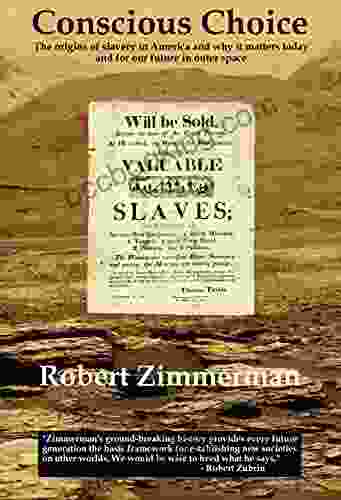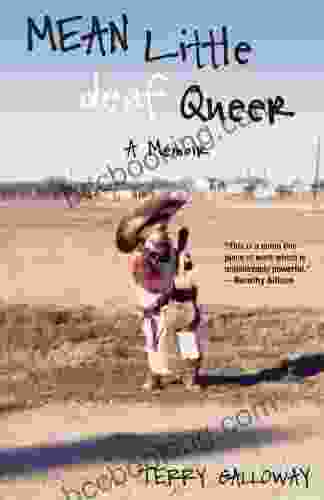Unveiling the Genesis of Slavery in America: Its Enduring Impact and Relevance Today and Beyond

Slavery, a scourge that has plagued humanity for centuries, has left an indelible mark on the tapestry of American history. Its origins are deeply entwined with the nation's founding, shaping the very fabric of its society and economy. Understanding the origins of slavery in America is not merely an academic exercise but a profound journey into the roots of systemic racism, inequality, and injustice that continue to resonate in our present-day society.
4.3 out of 5
| Language | : | English |
| File size | : | 22989 KB |
| Text-to-Speech | : | Enabled |
| Screen Reader | : | Supported |
| Enhanced typesetting | : | Enabled |
| X-Ray | : | Enabled |
| Word Wise | : | Enabled |
| Print length | : | 471 pages |
| Lending | : | Enabled |
The Seeds of Slavery: A Complex Genesis
The seeds of slavery in America were sown during the era of European exploration and colonization. As European powers sought to establish colonies in the New World, they turned to enslaved labor as a means of exploiting the vast resources of the land. The first enslaved Africans arrived in North America in 1619, brought to Jamestown, Virginia, aboard a Dutch ship. Initially, slavery was primarily used in the production of cash crops such as tobacco, rice, and cotton. However, as the colonies grew and prospered, so too did the demand for enslaved labor, which expanded into various sectors of the economy.
Initially, some forms of indentured servitude existed in the colonies, whereby individuals agreed to work for a specified period in exchange for passage to America. However, as the demand for labor grew, the system of chattel slavery, where individuals were treated as property and bought and sold, became deeply entrenched. The vast majority of enslaved people in America were of African descent, and their enslavement was justified through a twisted narrative of racial inferiority and white supremacy.
The Evolution of Slavery: From Indentured Servitude to Chattel Slavery
Over time, the system of slavery in America underwent a series of transformations. Initially, enslaved people were primarily used as agricultural labor on plantations. However, as the colonies grew and industrialized, the demand for enslaved labor expanded into other sectors, including mining, manufacturing, and transportation. The rise of the cotton industry in the 19th century led to a surge in the demand for enslaved labor, and the institution of slavery became deeply intertwined with the economic prosperity of the Southern states.
The physical and psychological brutality of slavery was pervasive, with enslaved people subjected to unimaginable horrors. They were denied basic human rights, separated from their families, and subjected to harsh punishments for even minor infractions. The institution of slavery not only dehumanized enslaved people but also bred a culture of violence and oppression that permeated all aspects of society.
The Abolitionist Movement: A Struggle for Freedom
Despite the entrenched nature of slavery, resistance and abolitionist movements emerged throughout American history. In the late 18th century, the movement gained momentum, led by a diverse group of activists, including Frederick Douglass, Sojourner Truth, and William Lloyd Garrison. The abolitionists condemned the moral and ethical evils of slavery and advocated for its immediate end.
The abolitionist movement faced fierce opposition from pro-slavery forces, and the debate over slavery became a major source of conflict and division in the United States. The issue ultimately led to the American Civil War, a bloody conflict that claimed the lives of hundreds of thousands of Americans and culminated in the abolition of slavery with the passage of the Thirteenth Amendment to the Constitution in 1865.
The Legacy of Slavery: Enduring Impact and Contemporary Relevance
While slavery was formally abolished in the United States, its legacy continues to shape American society today. The systemic racism, inequality, and discrimination that were deeply ingrained in the institution of slavery have had lasting consequences, influencing everything from education, housing, healthcare, and criminal justice to political representation and economic opportunity.
Understanding the origins of slavery in America is essential for comprehending the racial disparities and injustices that persist today. The legacies of slavery continue to manifest in various forms, including mass incarceration, racial profiling, voter suppression, and economic inequality. Addressing these issues requires a deep understanding of their historical roots and a commitment to dismantling the structures that perpetuate them.
The Importance of Education: Uncovering the Truth and Shaping the Future
Education plays a vital role in confronting the legacy of slavery and building a more just and equitable society. It is through education that we can uncover the hidden truths of our history, challenge prevailing narratives, and empower future generations to create a better world. By incorporating comprehensive and accurate accounts of slavery into school curricula, we can foster a deeper understanding of its origins, evolution, and lasting impact.
Educating ourselves and future generations about the origins of slavery in America is not about dwelling on the past but about empowering ourselves to shape a better future. By confronting the complexities of our history, we can gain a deeper understanding of the present and work towards creating a society that is truly free from the shackles of racism and inequality.
Unveiling the Origins: A Call to Action
The book "The Origins Of Slavery In America And Why It Matters Today And For Our Future" is a timely and essential exploration of the deep-rooted history of slavery in America. It invites us to confront the complexities of this dark chapter, unraveling the intertwined threads of history, race, and power that have shaped our present and continue to impact our future. Through meticulous research and powerful storytelling, the book sheds light on the genesis of slavery, its evolution, and the enduring legacies that continue to shape our world today.
4.3 out of 5
| Language | : | English |
| File size | : | 22989 KB |
| Text-to-Speech | : | Enabled |
| Screen Reader | : | Supported |
| Enhanced typesetting | : | Enabled |
| X-Ray | : | Enabled |
| Word Wise | : | Enabled |
| Print length | : | 471 pages |
| Lending | : | Enabled |
Do you want to contribute by writing guest posts on this blog?
Please contact us and send us a resume of previous articles that you have written.
 Book
Book Novel
Novel Page
Page Chapter
Chapter Text
Text Story
Story Genre
Genre Reader
Reader Library
Library Paperback
Paperback E-book
E-book Magazine
Magazine Newspaper
Newspaper Paragraph
Paragraph Sentence
Sentence Bookmark
Bookmark Shelf
Shelf Glossary
Glossary Bibliography
Bibliography Foreword
Foreword Preface
Preface Synopsis
Synopsis Annotation
Annotation Footnote
Footnote Manuscript
Manuscript Scroll
Scroll Codex
Codex Tome
Tome Bestseller
Bestseller Classics
Classics Library card
Library card Narrative
Narrative Biography
Biography Autobiography
Autobiography Memoir
Memoir Reference
Reference Encyclopedia
Encyclopedia Scott Weems
Scott Weems Shiraz Balolia
Shiraz Balolia Stephen Michael Shearer
Stephen Michael Shearer William J Broad
William J Broad Sharon Begley
Sharon Begley Tony Ollivier
Tony Ollivier Vince Milam
Vince Milam Sergei Urban
Sergei Urban Lane Hart
Lane Hart Tace Hedrick
Tace Hedrick Katya Seberson
Katya Seberson Yang Kuang
Yang Kuang You Fuguruma
You Fuguruma Susan A Milstein
Susan A Milstein Tony White
Tony White Travis Bradberry
Travis Bradberry The Church Of Jesus Christ Of Latter Day Saints
The Church Of Jesus Christ Of Latter Day Saints Troy Bruner
Troy Bruner Lex Croucher
Lex Croucher Tom Foreman
Tom Foreman
Light bulbAdvertise smarter! Our strategic ad space ensures maximum exposure. Reserve your spot today!
 Winston HayesFollow ·3.8k
Winston HayesFollow ·3.8k Angelo WardFollow ·9.2k
Angelo WardFollow ·9.2k Ivan TurgenevFollow ·7.2k
Ivan TurgenevFollow ·7.2k Walter SimmonsFollow ·9.7k
Walter SimmonsFollow ·9.7k Peter CarterFollow ·6k
Peter CarterFollow ·6k Langston HughesFollow ·2.7k
Langston HughesFollow ·2.7k Salman RushdieFollow ·7k
Salman RushdieFollow ·7k Jesse BellFollow ·3.9k
Jesse BellFollow ·3.9k

 Amir Simmons
Amir SimmonsImmerse Yourself in the Enchanting Realm of Nora Roberts'...
Prepare to be captivated by...

 Dan Henderson
Dan HendersonUnleash the Explosive Action of Going Ballistic Combined...
Prepare for an...

 Jeffery Bell
Jeffery BellDiscover the Controversial and Captivating "The Anarchist...
In the realm of literature, there are...

 Ryan Foster
Ryan FosterUnveiling Lincoln's Eloquence: How His Greatest Speeches...
In the annals of American...

 Jaime Mitchell
Jaime MitchellLove Radio Vinny Berry: A Journey of Heartbreak, Healing,...
Vinny Berry's...
4.3 out of 5
| Language | : | English |
| File size | : | 22989 KB |
| Text-to-Speech | : | Enabled |
| Screen Reader | : | Supported |
| Enhanced typesetting | : | Enabled |
| X-Ray | : | Enabled |
| Word Wise | : | Enabled |
| Print length | : | 471 pages |
| Lending | : | Enabled |














